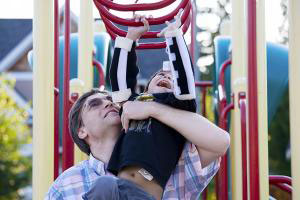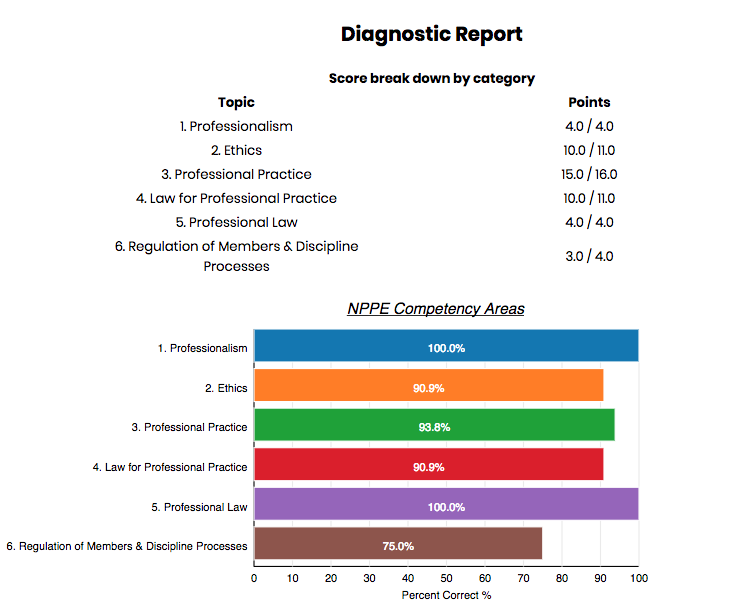Apens Exam Study Guide
APENS STUDY GUIDE Need some help studying for the exam? Would you like some sample questions for the various standards? Need to know what resources you should review for specific standards?
It should be noted that APENS exam study courses will NOT be recognized as part. APENS Standards Manual and APENS Study Guide as part of the course. Guide to the adapted physical education national standards (APENS). To pass the APENS exam and become a certified adapted physical educator (CAPE). A format that is designed for ease of study so that teachers can prepare with. Standards, Second Edition, is the physical educator's complete guide to understanding. Preservice teachers will use the text to prepare for the APENS exam. (NCPERlD) promotes research, professional preparation, service delivery,.
This 75-page book provides suggestions on how to study for each standard, presents sample test items with explanations for each answer, and recommends other resources for additional information. In addition to helping you study, the Guide is a valuable reference source for each of the 15 areas covered by the Standard. As you encounter challenges in the classroom or the gym, the Guide provides a means of quickly locating the most up-to-date source material for dealing with them. Order your copy of the APENS Study Guide by sending a check or money order in the amount of $12.00 (which includes postage and handling) made out to APENS. THE NATIONAL STANDARD Want to know what the actual standards are? Would you like specific examples of each standard? Learn what a CAPE must be able to demonstrate.
Apes Exam Study Guide
This volume is 219 pages of detailed information, clearly organized and arranged in a systematic fashion so that it becomes a useful reference for lesson planning and for consultations. Order your copy of the NATIONAL STANDARD by sending a check or money order in the amount of $19.00 (which includes postage and handling) made out to APENS.
Send it to along with a clear depiction of your complete mailing address to: APENS, c/o Timothy D. CAPE E224 Park Center, SUNY Cortland, P.O. Box 2000, Cortland, NY 13045 USEFUL TEXTBOOK REFERENCES Adams, R.
C., & McCubbin, J. Games, sport, and exercises for the Physically handicapped (4th ed.). Philadelphia: Lea & Febiger. D., & Sinclair, W. Physical education for special populations. Englewood Cliffs, NJ: Prentice Hall.
Auxter, D., Pyfer, J., & Heutting, C. Principals and methods of adapted physical education and recreation. (7th ed.).St. (Ed.) Adapted physical education: A comprehensive resource manual. Kearney, NE: Educational Systems Associates Inc.
Including students with disabilities into regular physical education. Baltimore, MD: H. Brooks Publishing. Adapted physical education in the mainstream. Denver: Love Publishing. DePauw, K.P., & Gavron S.J.
Disability and sport. Champaign, IL: Human Kinetics.
Special physical education: Adapted, individualized, developmental (7th ed.), Dubuque, IA: Brown and Benchmark. M., Moorehouse, J. W., & Fredericks, H. Physical education for the severely handicapped: A systematic approach to data‑based gymnasium. Austin, TX Pro Ed.
M., & Fait, H.F. Special physical education: Adapted, individualized, developmental. Philadelphia: W.
Eichstaedt, C. B., & Lavay, B. Physical activity for persons with mental retardation: Infant to adult. Champaign, IL: Human Kinetics. Eichstaedt, C. B., & Kalakian, L. Developmental/Adapted physical education: Making ability count.

New York: MacMillan. Folio, M R, (1986). Physical education programming for exceptional learners. Rockville, Maryland: Aspen Pub.
French, R., & Lavay, B. Behavior management skills for physical educators and recreators.
Kearney, NE: Educational Systems Associations Inc. Horvat, M., & Kalakian, L. Assessment in adapted physical education and therapeutic recreation. Madison, WI: Brown and Benchmark.
Physical education and sport for the exceptional child. Dubuque, IA: Wm. Teaching responsibility through physical activity. Champaign, IL: Human Kinetics.
The psychomotor domain and the seriously handicapped. Lantham MD: University Press of America. Jansma, P., & French, R. Special physical education. Englewood Cliffs, NJ: Prentice‑Hall. Training guide to cerebral palsy sports. Champaign, IL: Human Kinetics.
Adapted physical education national standards. Champaign, IL: Human Kinetics. Lasko‑McCartney, P., & Knopf, K. Adapted exercise for the disabled adult. Dubuque IA: Eddie Bowers Pub. Paciorek, M., & Jones, J.
Sport and recreation for the disabled: A resource manual. Carmel, IN: Cooper Publishing. Fitness and rehabilitation programs for special populations. Dubuque, IA: WCB; Brown & Benchmark. Seaman, J.A., & DePauw, K.P.
The new adapted physical education: A developmental approach. (Published by Mayfield Pub., distributed by American Association for Active Lifestyles and Fitness/AAHPERD ‑ 1900 Association Drive, Reston, VA 20191). Physical BEST and individuals with disabilities. Reston VA: American Alliance for Health, Physical Education, Recreation and Dance. Fitness in special populations.
Champaign, IL: Human Kinetics. Adapted physical activity, recreation and sport: Crossdisciplinary and lifespan. Dubuque, Iowa: Wm.
Adapted physical activity, recreation and sport: Crossdisciplinary and lifespan. Dubuque, Iowa: Wm.

Sport for the disabled athlete. Champaign IL: Human Kinetics. Leadership training in adapted physical education. Champaign, IL: Human Kinetics. A., & Kelly, L. Achievement‑based curriculum development in physical education. Philadelphia: Lea & Febiger.
Adapted physical education and sport. Champaign IL., Human Kinetics. P., & Short, F. Physical fitness testing of the disabled: Project UNIQUE. Champaign, IL: Human Kinetics. YMCA of the USA.
Aquatics for special populations. Champaign, IL: Human Kinetics.
APENS Chairman, Timothy D. Davis Ph.D., CAPE E224 Park Center, SUNY Cortland, Box 2000, Cortland, NY 13045 For further information, call toll free (888) APENS-Exam or (607) 753-4969 email.
CAPE Application - New Members CAPE Application - New Members CAPE Application - Professional Physical Educators CAPE Application - Persons in Higher Eduaction Certification Why Become Certified The roots of Adapted Physical Education extend back into the mid-1800's when physicians prescribed 'Remedial Exercises' in an attempt to correct or ameliorate 'handicaps'. The field went through a variety of transformations over the intervening century and a half. A great deal of thorough research has been conducted which brings to light effective methods for adapting Physical Education to meet the needs of people with disabilities. The training of those who provide Adapted Physical Education has evolved to exacting levels. Finally, society has come to realize that people with disabilities are actually a minority who possess different yet valuable abilities from the mainstream and as such, have the same rights to a free and appropriate education as the rest of society.
The time has come for those trained and charged with providing this specialized education to be recognized as being specialists who bring unique skills and insight to the teaching of Physical Education. APENS defines the foundation of those skills and knowledge and provides a proven method for certifying those who possess them.
APENS is now ready to launch a coordinated program to bring about appropriate professional recognition. Over the next three years, we will be undertaking the following:. Obtaining ongoing endorsements of APENS. Working with States to adopt APENS certification.

Provide assistance to individual CAPEs wishing to gain recognition from their school boards. Establish a means whereby CAPEs can exchange 'best practices' and which will keep them abreast of the latest developments in the field. Establish an annual conference of CAPEs - forum where those in the profession can meet and exchange ideas and experiences. We will commence a continued review of the 15 Standards and certification exam to ensure that they are up to date with current practice By becoming a CAPE, you will have an opportunity to personally help give our profession a unified voice and with that, the recognition it deserves.
On a personal level, you will receive the following:. Teachers that pass the exam will be certified by the NCPEID for a period of 7 years. These teachers will be listed in the NCPEID's national registry of certified adapted physical educators. They will also be given a one year membership in NCPEID.
Apens Exam Study Guide
Successful candidates will receive a certificate documenting that they are certified adapted physical educators and will be able to list the initials CAPE after their name. APENS is currently winning endorsements from a variety of National organizations. This growing recognition forms the backbone of a program to gain professional recognition and commensurate compensation from school districts across the nation. Who Can Become Certified Persons who are eligible to become a CAPE fall into three categories;. Recently graduated, qualified Physical Education Teachers (Exam). Professional Physical Educators (Exam). Persons teaching in Higher Education (Non Exam) Each of the above categories have specific definitions and require proof of certain qualifications.
These are detailed in the instructions under. Once you have determined which category you belong to, click on the appropriate link to download the appropriate Application Form. The forms are in Rich Text Format and are easily printable. They contain precise instructions for filling them out and sending them to the APENS office. NOTE: Persons who have already received the CAPE and are applying for recertification after the initial 7 year CAPE certification expires, will follow the guidelines as posted under on the application and website. Criteria for Eligibility Candidates applying for the national CAPE certification must meet the following criteria established by the APENS Board of Directors and supported by the APAC/AAPAR Highly Qualified Adapted Physical Education Teacher Position Paper.
There are three options available for Adapted Physical Educators/Physical Educators, persons in Higher Education and professionals (directors of Special Olympics, sport programs, etc.) who work with individuals with disabilities in physical activity/education to become CAPE certified. Sit for the APENS exam. All initial candidates applying to earn the CAPE Certification MUST take and pass the APENS exam. Candidates must meet the following minimum criteria to be eligible to sit for the APENS exam. Bachelor's degree with a major in Physical Education or equivalent (e.g., Sport Science, Kinesiology, etc.). A minimum of.twelve semester hours (credits) specifically addressing the educational needs of individuals with disabilities. It is required that nine semester hours (credits) be specific to the area of adapted physical education or meet the following criteria:.
Satisfactory completion of a minimum of 9 credits in APE coursework and 3 credits of coursework from a related field (e.g. Special education, speech, OT, PT, recreation, psychology) as documented with official college/university transcripts. Satisfactory completion of a minimum of 6 credits in APE coursework and 3 credits in coursework from a related field as documented with official college/university transcripts; and up to 3 credits awarded for professional experience teaching APE as documented in writing from a local education agency. Note: Up to 3 credits can be awarded with documented years experience teaching APE. The following formula would apply and must be documented in writing from a local education agency.
For every two years of full-time teaching in APE, 1 credit of requirement can be earned/awarded. The total amount of professional experience teaching APE that can be applied to the 12 credit eligibility is 3 credits (i.e., acknowledgment of up to 6 years of teaching experience in APE).
A minimum of 200 hours of documented experience providing physical education instruction to individuals with disabilities. A current valid teaching certificate in physical education.Evidence of coursework must relate to physical activity and students with disabilities as set forth by state and/or national standards for professional preparation in adapted physical education.